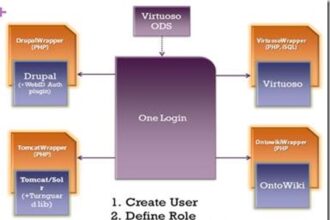“Mary is a 90 year old woman that is admitted to the hospital for Congestive Heart Failure.” This is the beginning of the story that’s been told many times by former Emergence Room Physician and now Oregon Governor John Kitzhaber. “Under the current system, Medicare will pay for the ambulance and $50,000 to stabilize her. It will not pay for a $200 window air conditioner, which is all she needs to stay in her home and out of the hospital.”
“Mary is a 90 year old woman that is admitted to the hospital for Congestive Heart Failure.” This is the beginning of the story that’s been told many times by former Emergence Room Physician and now Oregon Governor John Kitzhaber. “Under the current system, Medicare will pay for the ambulance and $50,000 to stabilize her. It will not pay for a $200 window air conditioner, which is all she needs to stay in her home and out of the hospital.”
George suffers from Coronary Artery Disease is rushed to the Emergency Room, because his caregiver wife is overwhelmed and exhausted. Alice is diabetic and has asthma is transferred to a skilled nursing facility because her physician believes she may not get proper nutrition at home.
Are we treating the causes or the symptoms?
In three months, Mary, George and Alice may each be back in the hospital again. With our many effective physicians, nurses and other providers combined with advances in medicine, they will each likely return home again in stable conditions. Yet it is unlikely the root causes will be addressed.
It may be hard to believe that what happens to Mary, George and Alice is common to over 5 million people per year in the United States. The top 5% of the United States population spends 50% of the $2.8 trillion dollars of healthcare costs or $88,000 per year. 66% of the top 5% list will not be on the list next year as their conditions will stabilize or they will be deceased. 34% of the 5% (about 5 million people) are just like Mary, George and Alice and will be on the list again next year.
Electronic Medical Records vs. Patient Intelligence
With so much money being spent on Electronic Medical Records (EMRs), you would think we would be getting closer to individual Patient Intelligence. EMRs have clinical documentation to facilitate diagnosing, treating conditions and substantiating the diagnosis codes (ICD-9 codes). The diagnosis codes are required to justify billing codes for Hospitals (DRGs, APCs), Physicians (CPTs), Medicare Advantage (HCCs) Plans and Healthcare Exchange (HCCs) Plans. The EMR also contains History & Physicals (H&Ps), Evaluation & Management (E&M) and other notes to manage the care patient’s receive within the physician office, Emergency Room, Hospital and other settings.
Yet it is unlikely the EMR will describe Mary’s need for an air conditioner, George’s need for Respite Care and caregiver support or Alice’s need for a home visit by a nutritionist. These patient barriers are not typically documented as they are not required for reimbursement nor is there a way to pay for these services that could save billions of dollars.
While EMR data, patient claims data (ICD-9, CPT, APC, DRG), pharmacy data and lab results are critical to stratify patient populations based on need, much of patient intelligence can only be gathered by talking to the patient. The clinical data we have is designed to treat conditions and get reimbursement for a CPTs and DRGs – not ensure patient recovery.
To improve patient recovery and save billions caring for the 5 million people like George, Mary and Alice, we will need to add patient intelligence to each of the following areas:
Clinical
- Clinical Conditions – You would think EMR and Patient Claims Data would ensure accuracy here, yet a study showed only 61% of patients with diagnosis of quadriplegia had it documented in patient claims in past 12 months. Also, patient provided inputs such as daily pain levels or blood pressure readings from wireless devices are unlikely to be included in the EMR.
- Functional Conditions – Unless a patient has recently been to a Skilled Nursing Facility, Inpatient Rehab or qualified for home health, it is unlikely they will have their “ADLs” Activities of Daily Living (i.e., dressing, bathing, eating, etc.) or “IADLS” Instrumental Activities of Daily Living (i.e., cooking, shopping, managing medications, etc.) documented. These conditions can change over time.
- Genomics – Human genome, microbiome and genome of tumors is cutting edge medicine, yet it can now be used to determine a more accurate treatment such as biologic medications or cutting edge gene therapy.
- Mental Health – There are hundreds of mental health diagnosis codes available, yet it is unlikely they are documented unless they are necessary to justify payment for a procedure or an inpatient stay.
Psychosocial
- Patient (About) – family and friends, careers and life narrative (who are they)
- Patient Activation – patient’s understanding of their clinical conditions, treatments and contributing factors. Self-care abilities, technology adoption (email, text, web, apps), etc.
- Patient Behavior & Lifestyle – nutrition, exercise, medication adherence, smoking, drugs, gambling as well physical, social and sedentary activities, etc.
- Patient Goals & Preferences – life goals, authorizations, living will, advanced directives, etc.
- Patient Influences & Support – people or sources influencing the patient, the advisory, physical and emotional support they receive from others
- Patient Resilience & Stress – mental toughness, positive outlook, stressful issues, etc.
- Patient Well Being – positive emotions, social connections, meaning and purpose (i.e., grandmother, being a care giver), using Dr. Martin Seligman PERMA model.
Environment
- Access & Logistics – ability to travel for food, physician visits and medicine or have assistance
- Community – available community programs such as Meals on Wheels, substance abuse coaches, etc.
- Home – heat, air conditioner, safety, free of mold, supportive technology, etc. (including temporary, institutional, shelters)
- Socioeconomic Status – income levels, ability to afford medicine, food, housing, etc.
Care Management
- Care Coordination – arranging physician visits, transportation, patient navigation, etc.
- Care Decision Making & Goals – assembling all the facts related to each of the other 19 areas of patient intelligence and help to arrive at the best decision
- Care Plan & Treatments – clinical and well as not clinical plans (i.e., find a job, quit smoking)
- Care Monitoring & Protocols – what is monitored? (i.e, following up on new medicines) how often? what is done with information?
- Care Team – list and roles of physicians, care givers, social workers, care coordinators, etc.









